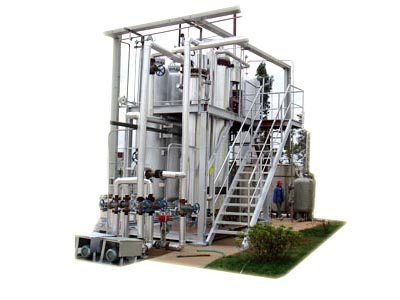"Create a more accessible system for world products to reach the innovators of the industry"
Sustainability
Solar
Renewability
Product Description

Hydrogen Generating Plant by Methanol
Price
Call for more Information781.519.4765
Request an Estimate
Introduction
|
Steam reforming, sometimes called Fossil fuel reforming is a method for producing hydrogen or other useful products from hydrocarbon fuels such as natural gas and Methanol. This is achieved in a processing device called a reformer which reacts steam at high temperature with the fossil fuel. Prior to pressurization, desulfurization, and mixing with aqueous vapor, natural gas/methanol is passed through a special reformer which is packed with a catalyst for cracking and reforming the effluent mixture of hydrogen, carbon dioxide and carbon monoxide. After part of the heat is recovered, hydrogen will be obtained by removing excess carbon monoxide from the reformed effluent. The shift gas is then purified further through pressure swing adsorption (PSA), to obtain pure hydrogen. This technology features low cost, simple user friendly operation and very easy maintenance |
Specifications
| Gas Treatment | 50-20000 Nm3/h |
| Adsorption Pressure | 1.3MPA-2.0MPA |
| H2 purity % | 99-99.999% |
Application
Welding, cutting, polishing, brazing, glass processing and jewelry processing etc.Replacement of LPG, Propane, Acetylene fuel or natural gas or other fuel.Micro-fabrication.Chemical EngineeringRenewable Energy |
Product List
-High Purity
-Reliable
-Economy
- » Main Product Page
- » Request Quotation
Hydrogen - Portable Hydrogen Generator
- Hydrogen Plant by Water Electrolysis
- Hydrogen Plant by Natural Gas Steam Reforming
- Hydrogen Plant by Methanol
- Hydrogen Plant by by Ammonia Decomposition
- Hydrogen Plant by Pressure Swing Adsorption with H2 Purifying System
Nitrogen and Oxygen - Nitrogen and Oxygen Plant by Pressure Swing Adsorption (PSA)
- Nitrogen and Oxygen Plant by Membrane Separation
- Liquid Nitrogen and Oxygen Plant